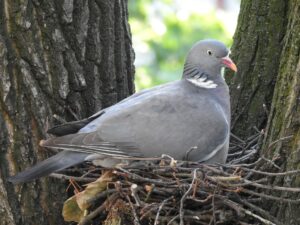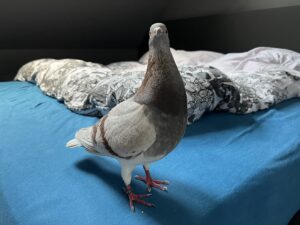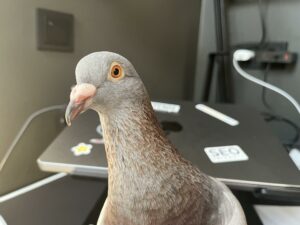As a proud pet pigeon owner of a charming creature named Gerard, I’ve often pondered over their complex behaviors, particularly regarding mating. This curiosity led me to an intriguing question that floats among avian enthusiasts: “Do pigeons die after mating?” Though it seems an outlandish query, it warrants a deep dive into pigeon biology and habits.
Understanding bird mating and lifespan is crucial for pet owners, conservationists, and bird-lovers alike, as it influences our caretaking methods and appreciation for these winged wonders. In this article, we’ll journey through the biological intricacies of pigeons, their mating rituals, lifespan, and myths surrounding their reproduction. We’ll also compare their behaviors with other bird species and discuss factors affecting pigeon lifespan, including the potential impact of mating.
Whether you’re a bird admirer, a prospective pet pigeon owner, or a curious reader, this exploration will offer invaluable insights into the captivating world of pigeons.
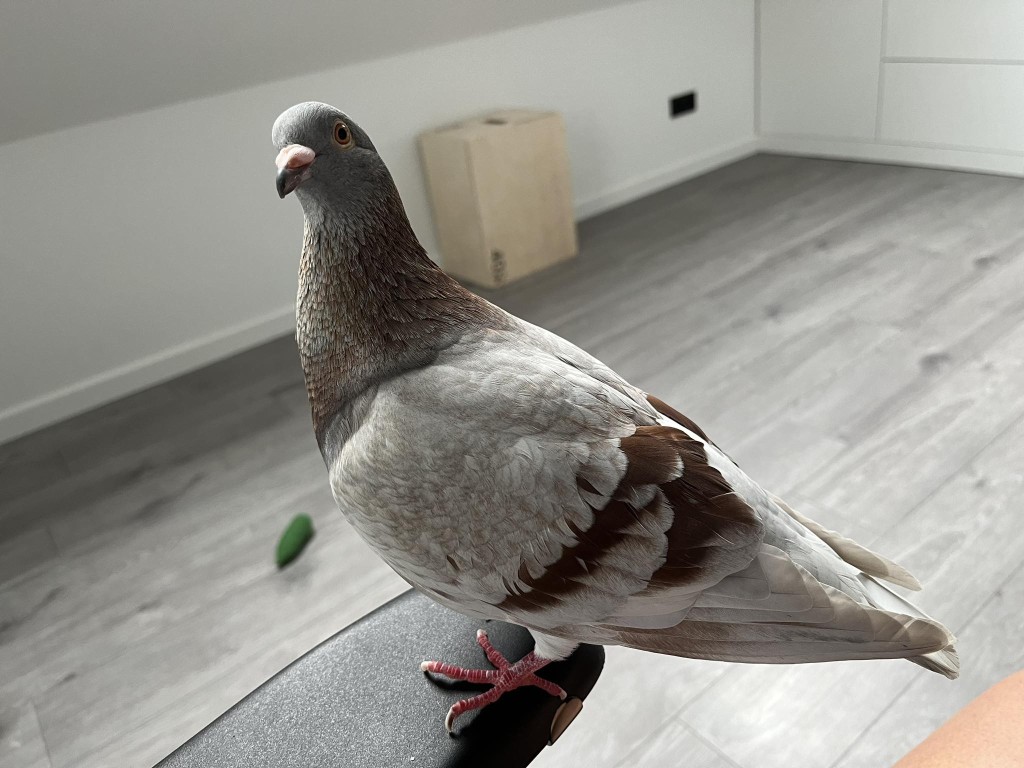
Do Pigeons Die After Mating?
Do Pigeons Die After Mating? TL;DR
Pigeons do not die after mating. This prevalent myth seems to stem from misunderstandings and observations of some insects and certain bird species. In reality, pigeons, known for their shared parenting and multiple breeding cycles, live much longer than a single mating season. Factors such as disease, predators, environmental hazards, and human activity significantly impact their lifespan, rather than their mating and reproduction. It’s essential to understand these realities to properly care for and appreciate these fascinating birds.
Do Pigeons Die After Mating? Understanding Pigeon Biology
Diving into the realm of pigeon biology offers a window into the world of one of the most common yet fascinating bird species. In this section, we unravel the layers of pigeon biology, exploring their varied types, habitats, and general behaviors. We also delve into the intriguing facets of their lifespan and the intricacies of their reproductive biology. Through understanding pigeon biology, we can better appreciate their unique behaviors, survival strategies, and their integral role in our urban landscapes and beyond.
Pigeons: A Brief Introduction
Pigeons, or rock doves, are a common sight in both urban and rural environments worldwide. They are members of the Columbidae family, which also includes doves. Pigeons vary in color, size, and feather pattern, with over 300 breeds known globally. They have an exceptional ability to navigate their way back home over long distances, earning them roles as messengers during historical events. Pigeons are highly sociable creatures, often seen in flocks, and exhibit a variety of behaviors ranging from cooing to elaborate displays of courtship.
Lifespan of Pigeons
As for the lifespan of pigeons, it’s important to note that many factors can influence it, including diet, predation, and access to resources. In the wild, pigeons typically live for about 3 to 5 years, while domesticated pigeons, like my dear Gerard, can live up to 15 years or more with proper care. Lifespan varies among different breeds as well.
Pigeon Reproductive Biology
The world of pigeon reproduction is a fascinating one. Pigeons form monogamous pairs for at least one breeding season, if not for life. The mating process initiates with courtship rituals, where the male pigeon displays a range of behaviors to attract the female, including bowing and cooing.
Once mating occurs, the female lays one or two eggs, which both parents take turns to incubate. Pigeon parents share the responsibility of feeding their young through a special ‘crop milk,’ a highly nutritious substance produced in their crops. Baby pigeons, or squabs, are typically ready to leave the nest about a month after hatching.
Check my article about Do Pigeons Make Nests?
It’s crucial to point out here that there is no evidence to suggest that pigeons die after mating. It’s a natural process for them, just as it is for most animals, and it’s part of their continued survival, rather than a cause of their demise. As we continue our journey into understanding pigeon biology, this fact becomes increasingly clear.
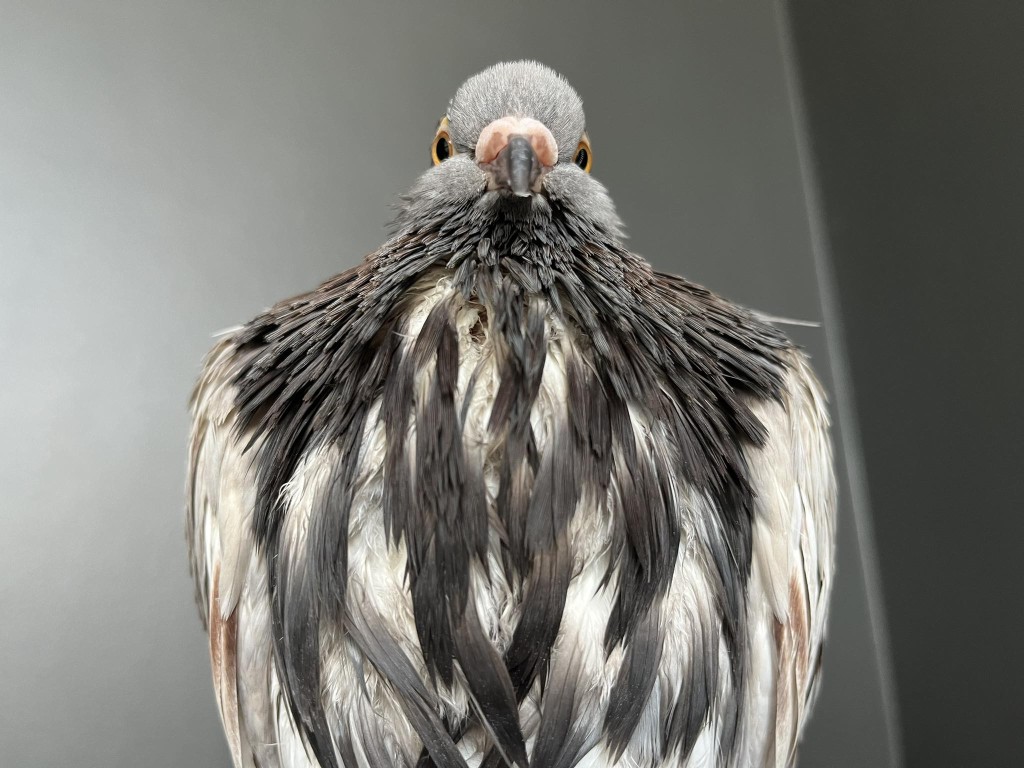
Pigeon Mating Rituals and Processes
In the animal kingdom, each species has unique rituals and processes for mating, and pigeons are no exception. Their mating behaviors are an elaborate dance of courtship, nest-building, and shared parenting. This chapter delves into the intricate world of pigeon mating rituals, from the initial display of the males to attract a mate, through to the shared responsibilities in raising their offspring. Understanding these rituals and processes is not only fascinating but also fundamental to appreciate the complexity of these widely known yet often misunderstood creatures.
Overview of Pigeon Mating Rituals
Pigeon mating rituals are both fascinating and complex, involving several key behaviors:
- Courtship Display: The male pigeon initiates the courtship by exhibiting a range of behaviors, such as puffing out his chest, cooing, and circling the female.
- Nesting Invitation: The male pigeon will then present a nesting site to the potential mate. This could be a spot in a tree, on a building ledge, or a nest box for domestic pigeons.
- Mutual Preening: If the female is receptive, she may join the male at the nesting site, leading to a phase of mutual preening, which strengthens their bond.
The Mating Process
The actual mating process in pigeons, like in many birds, involves a brief coupling where the male pigeon mounts the female and aligns his cloaca (a multipurpose opening) with hers to transfer sperm. This process, known as “cloacal kissing,” typically lasts only a few seconds. The female pigeon can store the sperm in her body and use it to fertilize eggs for several days after a single mating.
Check my article about Do Pigeons Lay Eggs?
Post-mating Behaviors
Once mating occurs, the female usually lays one or two eggs within a week. Both parents take turns incubating the eggs, a process that lasts about 18 days. After hatching, pigeon parents jointly care for their young.
Newly hatched pigeons, or squabs, are fed with crop milk, a protein and fat-rich substance produced by both parents. As the squabs grow older, their diet transitions to include partially digested food regurgitated by the parents.
The squabs are usually ready to leave the nest about a month after hatching. Even after leaving the nest, young pigeons may continue to be fed by their parents for a short period as they transition to independence. It’s clear that in the pigeon world, both parents play an essential role in raising their offspring, indicating a high level of cooperation and shared parental responsibility.
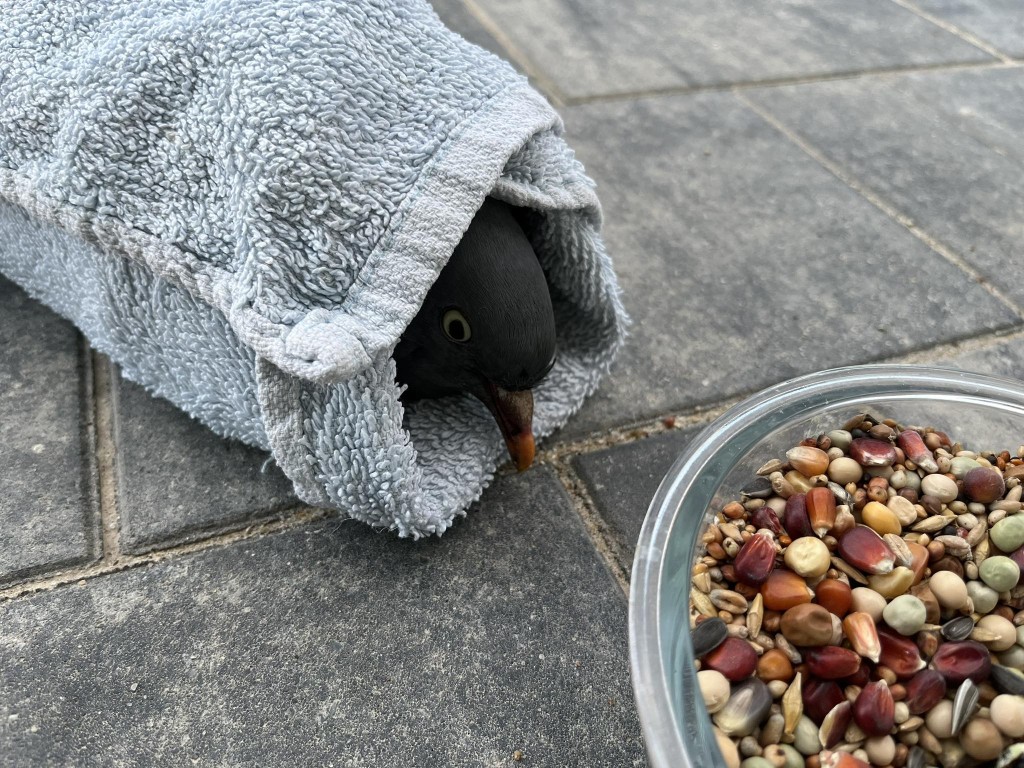
Do Pigeons Die After Mating? Myths and Misconceptions About Pigeon Mating
Myths and misconceptions often cloud our understanding of animal behavior, and pigeon mating is no exception. Among the most prevalent of these is the belief that pigeons die after mating. In this section, we confront this myth head-on, seeking to understand its origins, analyze its scientific validity, and ultimately, debunk it. By shedding light on the truth, we aim to enhance our understanding of pigeon behavior and promote a more informed appreciation of these remarkable creatures.
Common Misconceptions About Pigeon Mating and Death
There are several misconceptions surrounding pigeon mating, the most prevalent one being the notion that pigeons die after mating. This idea likely stems from the general lack of visible pigeon corpses in cities or suburban areas, leading to the assumption that they must have a unique death process. Another misconception is that pigeons mate for life, and when one dies, the other dies of heartbreak. While pigeons do often form long-term monogamous pairs, the death of one bird does not inevitably lead to the demise of the other.
Check my article about Do Pigeons Mate For Life?
The Origins of the Myth that Pigeons Die After Mating
The myth that pigeons die after mating might have its roots in observations of certain insect species and spiders, where the males often die after mating. However, applying this biological phenomenon universally across all species is misleading. Pigeons, like many birds, have a completely different reproductive strategy that prioritizes parental care and, often, multiple breeding cycles within a lifetime.
Analyzing the Scientific Validity of this Myth
From a scientific perspective, the idea that pigeons die after mating lacks validity. Pigeons are known to breed multiple times throughout their lives, with both parents playing an active role in raising their offspring. This wouldn’t be possible if either parent died after mating. Furthermore, several research studies on pigeon behavior and reproductive biology have provided no evidence to support this myth. It’s important to rely on scientific observations and research when exploring the intricate world of animal behavior and to question misconceptions that don’t align with these findings.
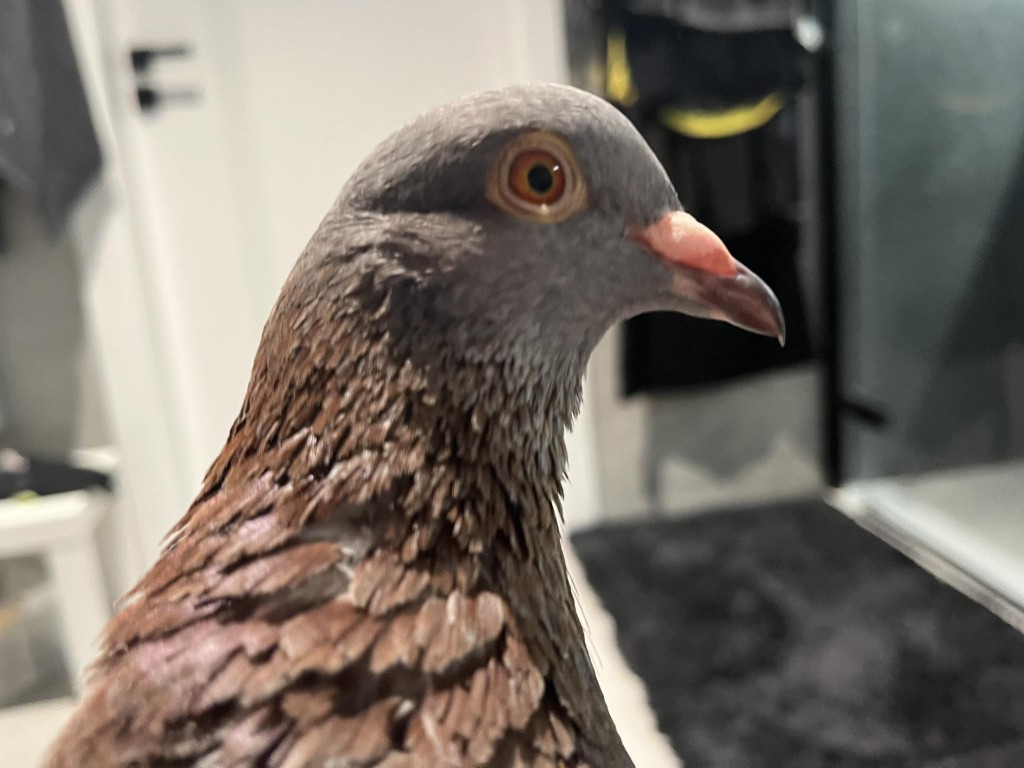
Do Pigeons Die After Mating? Comparing Pigeon Mating Rituals to Other Bird Species
The world of birds is rich and diverse, and so are their mating rituals. While we’ve explored the pigeon’s mating behavior in depth, it’s equally important to place it within the broader context of avian reproductive strategies. In this section, we’ll identify bird species that do indeed die after mating or a single reproductive cycle, compare these species’ behaviors and biology to those of pigeons, and understand the reasoning behind these different biological outcomes. This comparison underscores the diversity of nature’s survival strategies and adds a layer of appreciation for the unique paths evolution has taken.
Identification of Bird Species that Die After Mating or Reproductive Cycles
While the notion that pigeons die after mating is a myth, there are indeed other species in the animal kingdom where this phenomenon does occur. Notably, this is more common among insects and some aquatic species. However, there are birds like the male Australian emu wren and the male marsupial mouse that die after an intense breeding season due to physiological stress.
Comparison of These Species’ Behaviors and Biology to Those of Pigeons
Unlike pigeons, these birds live very short but intense lives. Their biological strategy is vastly different from pigeons, focusing on producing and mating with as many offspring as possible in a limited lifespan. For pigeons, their reproductive strategy is centered around longer-term survival, monogamous pairs, and shared parenting duties. The male pigeon, much like the female, has a role in incubating eggs and feeding the young, a stark contrast to the birds mentioned earlier.
Reasoning Behind the Different Biological Outcomes
The differing biological outcomes are a result of varied survival strategies shaped by natural selection. For species where males die after mating or a single breeding season, the strategy is often to pass on their genes as much as possible within a short timeframe. For pigeons and many other bird species, survival and the ongoing care for their young over a longer period allows for repeated breeding cycles. The investment in the care of their offspring may enhance their overall genetic contribution to the next generation.
These survival strategies reflect the diversity of life and the myriad of ways different species ensure their continuation. It’s a reminder of the fascinating adaptability of nature in the face of life’s varying challenges.
Factors Influencing Pigeon Lifespan
Life expectancy in pigeons, as in all species, is influenced by a complex interplay of factors. From natural threats like disease and predators to environmental hazards and human activities, many elements can significantly impact a pigeon’s lifespan. This section aims to explore these factors in detail and understand how mating and reproduction play a role in pigeon mortality rates. With this knowledge, we can better appreciate the challenges these birds face and potentially contribute to their conservation and well-being.
Common Causes of Death in Pigeons
Several factors contribute to the mortality of pigeons, with the most common ones being:
- Disease: Pigeons, like all creatures, are susceptible to a variety of diseases. These can include viral diseases like Pigeon Paramyxovirus, bacterial infections such as Paratyphoid, and parasitic diseases like Trichomoniasis, which is particularly detrimental to young squabs.
- Predators: Pigeons have numerous predators, including hawks, falcons, raccoons, foxes, and even large species of owls. In urban areas, domestic cats can pose a significant threat.
- Environmental Hazards: These include harsh weather conditions, pollution, lack of food, or water resources. Accidents such as collisions with vehicles or buildings are also notable causes of death in urban pigeons.
Impact of Human Activity on Pigeon Lifespan and Survival
Human activities significantly influence pigeon lifespan and survival. Habitat loss due to urban development and deforestation can deprive pigeons of their natural habitats. Pollution can impact their health and food sources. Pesticides used in agriculture can harm pigeons if they consume contaminated food. Unintentionally or intentionally feeding pigeons inappropriate food, like bread, can lead to malnutrition. On the positive side, humans can also contribute to pigeon survival by providing proper care for domestic pigeons and adopting measures to protect and conserve wild populations.
The Role of Mating and Reproduction in Pigeon Mortality Rates
Mating and reproduction do not directly contribute to high pigeon mortality rates. While the energy expenditure during courtship, nest-building, and raising young can be significant, it’s an essential part of the pigeon’s lifecycle. Pigeons, like most bird species, are adapted to handle these activities without a drastic impact on their overall lifespan. However, it’s worth noting that during these periods, pigeons may be more vulnerable to predators or disease due to their concentrated focus on their mates and offspring.
Do Pigeons Die After Mating? Final Thoughts
In this article, we delved into the intricate world of pigeon biology, exploring their lifespan, reproductive strategies, and mating rituals. As pet pigeon owners and bird enthusiasts, understanding these behaviors is key to appreciating these remarkable creatures. Contrary to a common myth, we discovered that pigeons do not die after mating. This myth may have originated from the observation of certain insects and a few bird species that do exhibit such behavior, but it is not applicable to pigeons.
Pigeons, with their shared parental duties and multiple breeding cycles within their lifespan, have a different survival strategy. The death of pigeons is usually influenced by various factors such as disease, predators, environmental hazards, and human activity, not mating and reproduction. By acknowledging these realities and debunking such misconceptions, we can foster a better understanding of and respect for these feathery companions.
Do pigeons die after mating?
No, the belief that pigeons die after mating is a myth. Pigeons can mate and reproduce multiple times throughout their lives.
What are the common causes of death in pigeons?
Common causes of death in pigeons include disease, predation, and environmental hazards, such as harsh weather or collisions with man-made structures.
Do both male and female pigeons participate in parental care?
Yes, both male and female pigeons share the responsibilities of parenting, including incubating the eggs and feeding the young.
How does pigeon mating behavior compare to other bird species?
Pigeon mating behavior involves long-term pair bonds and shared parental care, differing from species where males die after mating or a single breeding season. Their survival strategy is more about ongoing care and multiple breeding cycles.
What is the typical lifespan of a pigeon?
The typical lifespan of a pigeon can vary significantly based on the species and whether the pigeon is wild or domesticated. However, on average, pigeons can live between 3-5 years in the wild and up to 15 years or more in captivity.
How do human activities impact the lifespan and survival of pigeons?
Human activities can negatively impact pigeon survival through habitat loss, pollution, and inappropriate feeding. However, proper care for domestic pigeons and conservation measures can positively impact their survival.
What is the reproductive strategy of pigeons?
Pigeons typically form monogamous pairs and have multiple breeding cycles within their lifespan. Both parents share the responsibility of raising the offspring.
Do any bird species die after mating?
While it’s rare, some birds, like the male Australian emu wren and marsupial mouse, die after an intense breeding season due to physiological stress. However, this behavior is more common in insects and some aquatic species.
How does mating and reproduction influence pigeon mortality rates?
Mating and reproduction do not significantly contribute to pigeon mortality rates. However, during these periods, pigeons may be more vulnerable to predators or disease due to their focus on their mates and offspring.
Where did the myth that pigeons die after mating come from?
The origin of the myth isn’t entirely clear, but it may stem from observations of certain insect species and spiders where males often die after mating. However, it’s misleading to apply this biological phenomenon universally across all species.

